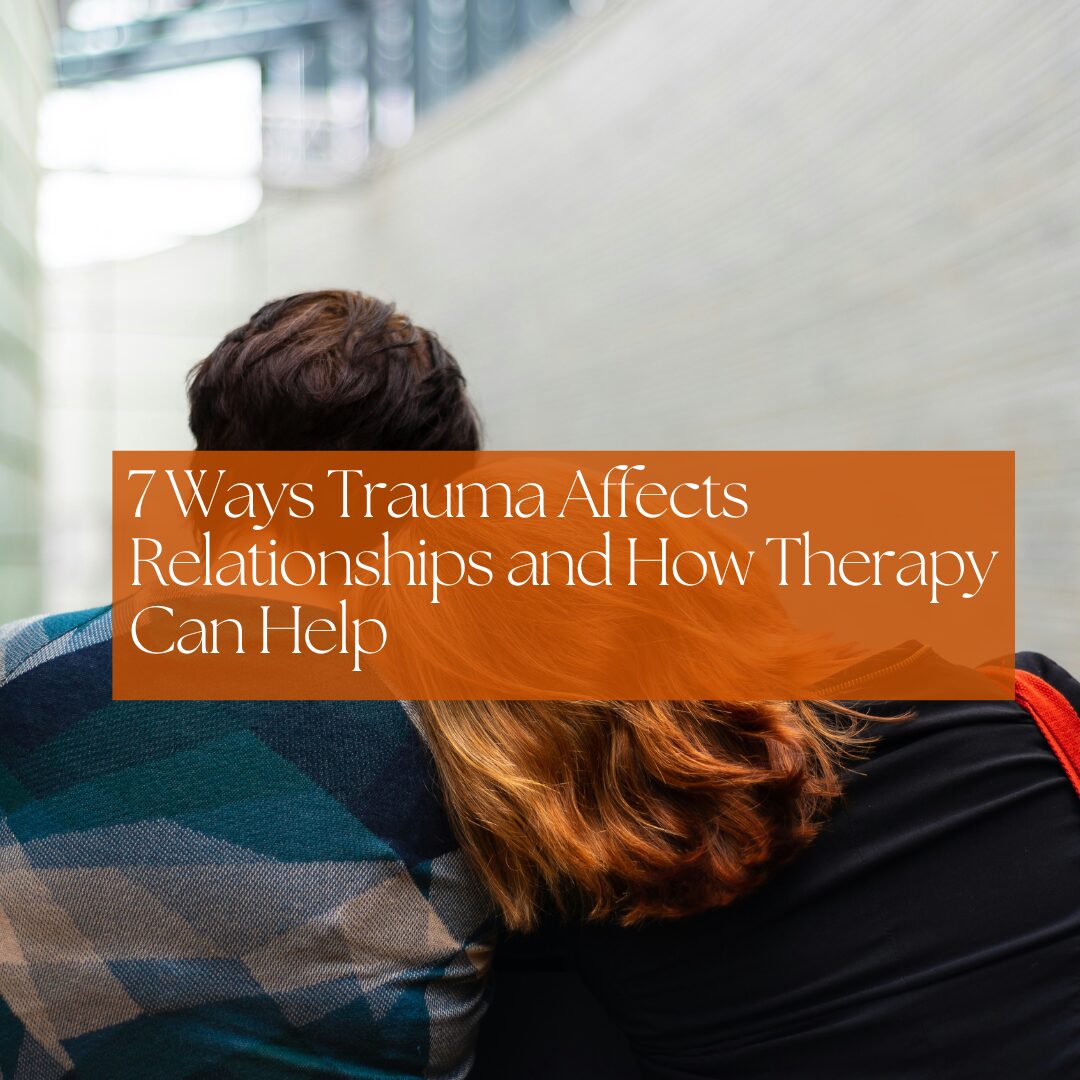Trauma can deeply affect all aspects of life, especially relationships. Whether the trauma stems from childhood experiences, an accident, or a significant life event, its impact often extends far beyond the individual, influencing how they connect with others. Understanding how trauma shapes relationships can be the first step toward healing and building healthier, more fulfilling connections. Here are seven ways trauma can affect relationships, and how therapy, particularly Brainspotting, can help overcome these challenges.
- Trust Issues
Trauma can disrupt a person’s ability to trust others. When someone has experienced betrayal, neglect, or harm, they may find it hard to rely on others, fearing they will be hurt again. This lack of trust can make it difficult to form close bonds and can create distance in relationships. Therapy can help rebuild trust by addressing the root causes of trauma and gradually restoring a sense of safety in relationships.
- Emotional Numbing
Many trauma survivors experience emotional numbing, which can prevent them from fully engaging in relationships. They may feel disconnected from their emotions, making it challenging to form deep emotional connections with others. Brainspotting therapy helps individuals access and process these deeply buried emotions, gradually allowing them to reconnect with their feelings and with the people around them.
- Fear of Intimacy
Trauma, especially related to abuse or abandonment, can create a fear of intimacy. This can manifest as avoiding close connections or being overly guarded in relationships. Therapy provides a safe space to explore these fears and helps individuals learn how to approach intimacy in a healthy and secure way.
- Hypervigilance
People who have experienced trauma often live in a state of hypervigilance, constantly on edge and expecting danger. This heightened state of alertness can make it hard to relax and enjoy relationships, leading to constant tension and misunderstandings. Trauma-focused therapies like Brainspotting allow individuals to release this constant state of fear, helping them feel more present and at ease in their relationships.
- Communication Barriers
Trauma can hinder communication, as individuals may struggle to express their needs, feelings, or fears. This can lead to frustration and misunderstandings in relationships. Therapy helps trauma survivors develop healthier communication patterns, allowing for more honest and open dialogue with their partners, friends, and family members.
- Difficulty with Boundaries
Trauma survivors may struggle with setting or respecting boundaries, either becoming overly dependent on others or isolating themselves. Therapy, especially with techniques like Sensorimotor Therapy and Brainspotting, helps individuals understand the importance of healthy boundaries and how to implement them, leading to more balanced and respectful relationships.
- Repeating Negative Patterns
Unresolved trauma often leads individuals to repeat negative relationship patterns, such as attracting emotionally unavailable partners or staying in unhealthy relationships. Therapy helps break these cycles by uncovering the trauma at the core of these behaviors and teaching new ways to approach relationships with self-awareness and intention.
How Brainspotting Therapy Can Help
Brainspotting is an advanced therapeutic technique that works by accessing deeply held trauma in the brain. Unlike traditional talk therapy, Brainspotting uses eye positioning and focused mindfulness to help individuals process trauma that may be stored in the body and brain at a deeper level. This technique is particularly effective for people struggling with the long-term effects of trauma, including relationship challenges.
At Common Thread Counseling, we specialize in Brainspotting and other trauma-informed therapies like EMDR and Sensorimotor Therapy. Our compassionate therapists are here to help you heal from past trauma and build healthier, more fulfilling relationships.
If you’re ready to start your healing journey and explore whether Brainspotting might be right for you, we invite you to book a consultation with us. Our team will guide you through the process and help you decide if this powerful therapy is the next step in overcoming the effects of trauma on your relationships.
Click here to contact us to schedule your consultation and take the first step toward healing and healthier connections.
